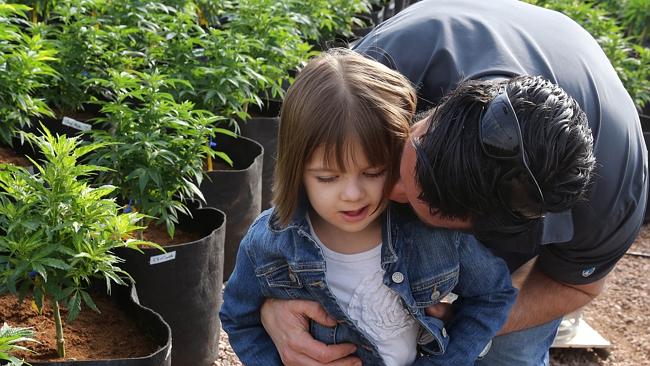
Charlotte Figi was an American girl with Dravet syndrome who took cannabidiol oil to prevent seizures and inspired the name of the medical cannabis strain called Charlotte’s Web.
For some people cannabis is a drug for stoners. For a growing number of people it offers a lifeline of hope against pain or for treating chronic conditions. Israel has been on the leading edge of cannabis research since the 1960s when Raphael Mechoulam, a chemist, studied its molecular compounds and pointed to its potential for fighting epilepsy and other illnesses.
Since, the country’s scientists have been inspired and have plugged away at new channels of research, even being the first in the world to come up with a pain drug based on cannabis (the company was called Pharmos, but the drug never made it on the market). This month the prestigious science journal Nature reports on breaking news in one of its publications Translational Psychology: that cannabis might treat autism.
PhD student Shani Poleg with Prof. Daniel Offen have successfully treated autism in lab mice using medical cannabis oil. The researchers found that this treatment improves both behavioral and biochemical parameters of autism.
“The usual process for testing new medications involves research in petri dishes, followed by animal models and finally a clinical study in humans,” explains Prof. Offen:
“With medicinal cannabis the process has been reversed: treatments began in humans. Since cannabis is not defined as a medication, trials have already been conducted in children and adolescents with autism – without any preliminary studies addressing issues like the effect of cannabis on biochemical processes in the brain, spinal fluid or blood, and who can benefit from which type of cannabis oil.
“There is a great deal of misinformation on the subject of medicinal cannabis and autism, and Shani Peleg’s doctoral project represents pioneering basic research with regard to treating autism with cannabis oil.”
Autism is a neurodevelopmental disease, and its main symptoms are social deficiencies and compulsive behaviors. Cases range from mild to severe, and causes are both genetic and environmental. In about 1% of all autism cases, a mutation in a single gene, called Shank3, is associated.
In the current study researchers at Tel Aviv University in Israel used animal models with a mutation in Shank3 to test the effectiveness of cannabis oil for alleviating symptoms of autism.
“We saw that cannabis oil has a favorable effect on compulsive and anxious behaviors in model animals,” says Poleg. “According to the prevailing theory, autism involves over-arousal of the brain which causes compulsive behavior.
“In the lab, in addition to the behavioral results, we saw a significant decrease in the concentration of the arousing neurotransmitter glutamate in the spinal fluid – which can explain the reduction in behavioral symptoms.”
Attempting to determine which components of cannabis oil alleviate symptoms of autism, the researchers found that THC, which is responsible for the euphoric sensation associated with the use of cannabis (and which was first isolated and identified by an Israeli researcher Mechoulam), is effective in treating autism, possibly even in small quantities.

Shani Poleg finds that THC treats autism
“Clinical trials testing cannabis treatments for autism usually involve strains containing very large amounts of CBD or the cannabidiol molecule– due to this substance’s anti-inflammatory properties, and because it does not produce a sense of euphoria,” says Poleg.
“The strains used for treating autism usually contain very little THC, due to apprehension regarding both the euphoria and possible long-term effects. In the second stage of our study we inquired which active substance in cannabis causes the behavioral improvement, and were surprised to discover that treatment with cannabis oil that contains THC but does not contain CBD produces equal or even better effects – both behavioral and biochemical. Moreover, our results suggest that CBD alone has no impact on the behavior of model animals.”
“This is of course an initial study,” concludes Poleg. “But we hope that through our basic research we will be able to improve clinical treatments. Our study shows that when treating autism with medicinal cannabis oil there is no need for high contents of either CBD or THC.
“We observed significant improvement in behavioral tests following treatments with cannabis oil containing small amounts of THC and observed no long-term effects in cognitive or emotional tests conducted a month and a half after the treatment began.”



